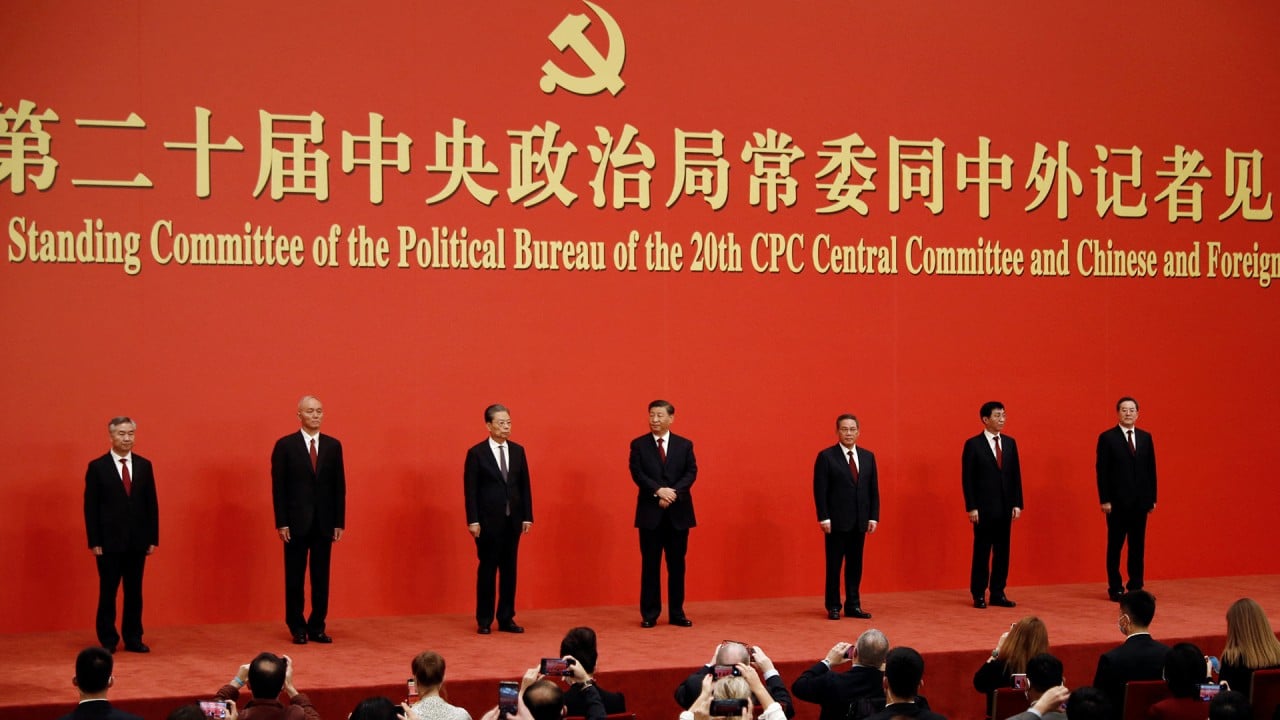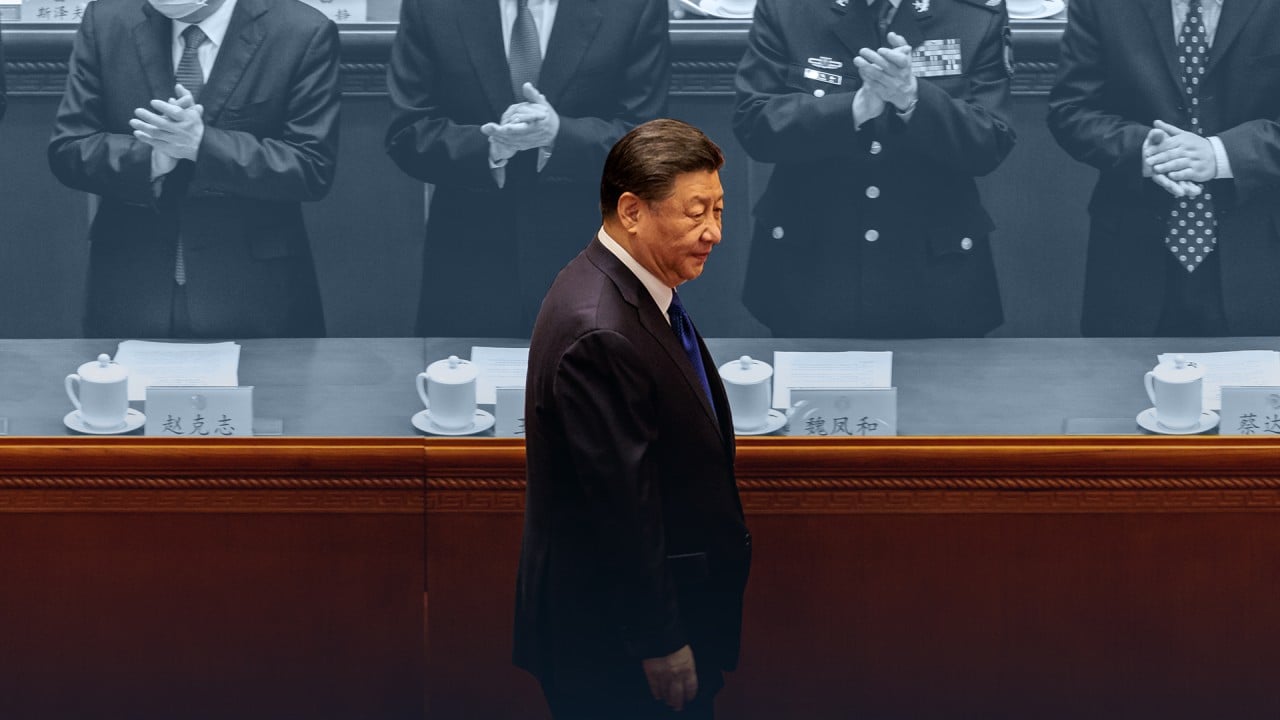
Explainer | What are China’s ‘two sessions’ and why do they matter?
- The country’s main political set piece of the year will see a new government team unveiled
- Changes to the political leadership last year have already provided plenty of clues about who will fill the top roles
Here are the key questions about the meeting.
What are the “two sessions”?
The two sessions, or lianghui, refers to the meeting of the country’s legislature, the National People’s Congress (NPC), and the top political advisory body, the Chinese People’s Political Consultative Conference (CPPCC).
The event will begin on Saturday when more than 2,000 CPPCC members assemble at the Great Hall of the People in Beijing. The legislative session starts the following day.
The 2,977 deputies in the legislature represent mainland provinces, autonomous regions (including Hong Kong and Macau), municipalities, and the People’s Liberation Army. There is also a Taiwanese delegation, but it is made up solely of mainland residents.
Meanwhile, the CPPCC exists to debate proposals, not pass laws, and consists of 2,172 representatives from various representative groups, industries and nominally non-Communist political parties.
The event usually runs for one or two weeks and traditionally ends with a press conference by the premier.
What is so special about this year’s two sessions?
This year will see a raft of new appointments to key government, legislative and advisory roles and the announcement of an institutional reform plan.
Xi Jinping will also be formally elected to an unprecedented third term as president following a change to the constitution in 2018 that scrapped term limits.
China’s Xi Jinping vows ‘forceful’ reform of finance and technology sectors
However, the membership of the State Council, the country’s cabinet, will only be announced when the NPC is sitting.
The line-up of the new government and CPPCC leadership was finalised by the Politburo, the party’s highest policymaking body, and approved by the party’s Central Committee late last month.
Attention will also be focused on reform plans for the party and state. These will strengthen the party’s “centralised leadership” and boost administrative efficiency, according to a statement released after the Central Committee conclave ended on Tuesday.
Xi also said last week that the shake-up would focus on “key industries” and “deepen reform” of the financial system as well as “completing the party’s concentrated leadership over technology”.
Alfred Wu, an associate professor at the National University of Singapore, said the reform plan would continue to strengthen the party’s rule over state institutions and transform the dual structure into a “pyramid” topped by Xi.
“In the past, they looked like they have two organisations, but now all power looks like a pyramid. A pyramid means that Xi Jinping now is somebody who is like supreme leader or someone beyond Deng Xiaoping [the late paramount leader],” Wu said.

The two sessions also sees the announcement of the annual economic targets, and this year the main area of interest will be on how the government intends to help the post-Covid economic recovery.
What leadership changes can we expect?
All the current vice-premiers, who are responsible for different policy areas, are likely to be replaced. Ding Xuexiang, ranked No 6 on the Politburo Standing Committee, is expected to be named as executive vice-premier.
The other roles are expected to be filled by Politburo members, including Liu Guozhong, the former Shaanxi party chief, and Zhang Guoqing, who held a similar role in Liaoning.
The list of new state councillors is expected to include new Foreign Minister Qin Gang and Li Shangfu, a member of the Central Military Commission who is likely to become the next defence minister.
What will China’s ‘two sessions’ 2023 bring?
What else should we watch out for?
As well as becoming the next economic policy chief, He, a Xi loyalist, might also take over as central bank party chief, according to a Wall Street Journal report.
If confirmed, this rare dual appointment would give him strong political backing but shred the bank’s independence.
“In the past, although People’s Bank of China technocrats would ultimately achieve the objectives set forth by the party centre, the technocrats would try to do it in a way to minimise medium-term risks to the overall financial system,” said Victor Shih, a specialist in Chinese elite politics and finance at the University of California San Diego.
He’s background is largely in fiscal planning not finance, and Shih said he may prioritise the immediate implementation of Xi diktats and be less aware of potential pitfalls such as inflation and non-performing rules when applying a fiscal stimulus.
What will be on the policy agenda?
The post-Covid economy is certain to be high on the agenda after the country missed its 5.5 per cent growth target last year.
The latest Central Committee conclave has also warned the recovery is still facing “fundamental challenges” in both demand and supply.
Xi to focus on stability and self-reliance after ‘two sessions’, analysts say
Outgoing premier Li Keqiang will announce the annual growth target when he delivers his work report at the start of the two sessions. He is likely to set a target of over 5 per cent, which Shih said would require a lot of infrastructure investment and be financed through debt.



